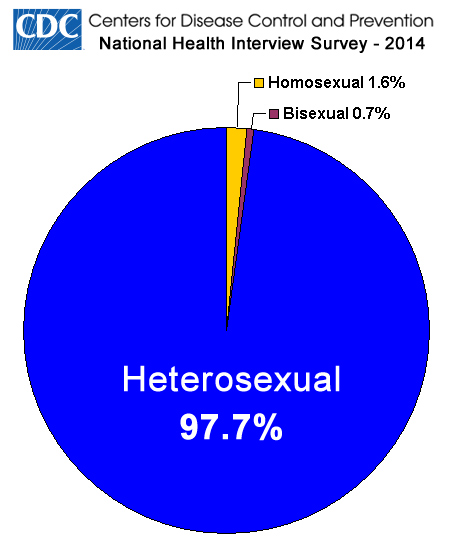The National Health Interview Survey, [run by the CDC] which is the government’s premier tool for annually assessing Americans’ health and behaviors, found that 1.6 percent of adults self-identify as gay or lesbian, and 0.7 percent consider themselves bisexual.
Less than 3 percent of the U.S. population identify themselves as gay, lesbian or bisexual, the Centers for Disease Control and Prevention reported Tuesday in the first large-scale government survey measuring Americans’ sexual orientation.
The National Health Interview Survey, which is the government’s premier tool for annually assessing Americans’ health and behaviors, found that 1.6 percent of adults self-identify as gay or lesbian, and 0.7 percent consider themselves bisexual.
The overwhelming majority of adults, approximately 97.7% of the population is heterosexual. [This includes the 96.6 percent who labeled themselves as straight and the 1.1 percent who either declined to answer, responded “I don’t know the answer” or said they were “something else.] [Read more…]


